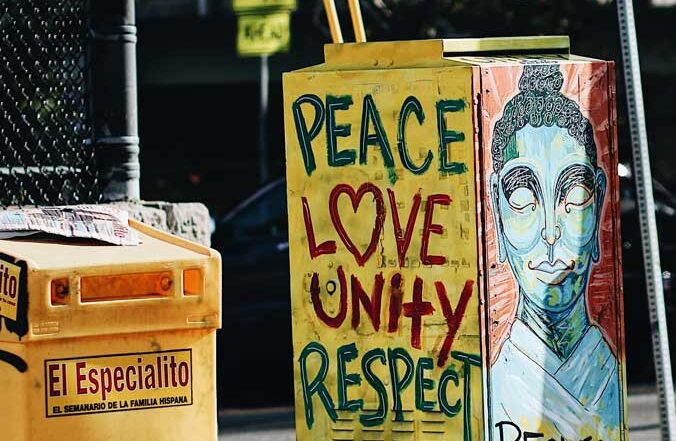TDVAM
February is Teen Dating Violence Awareness Month
Teen Dating Violence is a national epidemic that effects millions of teens in the United States.
Participate with us:
Mon Feb 5th – Fri Feb 9th
Love Like That!
Don’t forget to tag us: #lovelikethat #tdvam24 #lovelevelup #safespace
Know the Warning Signs
Romantic relationships between teenagers are incredibly complicated. The undertaking of a relationship, very often, requires more maturity than most teens have developed. These relationships are more likely to be riddled with problems include communication, jealousy, and selflessness.
As a result, teenagers are more likely to be involved in relationships that are unhealthy, violent, and/or abusive. If you are a teenager involved in a romantic relationship it is important to understand the behaviors that may point to an unhealthy and/or abusive relationship.
Unhealthy or abusive relationships take many forms, and there is not one specific behavior that causes a relationship to be categorized as such. However, there are certain behaviors that should be cause for concern. Behaviors that should raise a red flag include:
- Excessive jealousy or insecurity;
- Invasions of your privacy;
- Unexpected bouts of anger or rage;
- Unusual moodiness;
- Pressuring a partner into unwanted sexual activity;
- Blaming you for problems in the relationship and not taking any responsibility for the same;
- Controlling tendencies;
- Explosive temper;
- Preventing you from going out with or talking to other people;
- Constantly monitoring your whereabouts and checking in to see what you are doing and who you are with;
- Falsely accusing you of things;
- Vandalizing or ruining your personal property;
- Taunting or bullying; or
- Threatening or causing physical violence.
If your partner frequently engages in these behaviors it may be wise to speak with someone with whom you feel comfortable. Adults who have experience with relationships may be able to provide advice that can help you to determine if you are in any danger.
If your partner exhibits any of the behaviors outlined above, or if your partner has physically harmed you in any way, there are many things you can do. Trust your gut – if you think you are in danger or in an unhealthy relationship, you should end it. If you are afraid of confronting your partner, or fearful of what they may say or do, there are numerous resources you can contact for help, guidance, or counseling. If you think you are in an abusive relationship, you should consider:
- Reaching out to a trusted friend, teacher, parent, or mentor;
- Spending more time with individual with whom you are comfortable;
- Getting involved with activities you enjoy that will allow you to associate with positive people;
- Seek the guidance of a school counselor or therapist; or
- Calling the National Domestic Violence Hotline at 800-799-SAFE (7233).
Studies have found that negative or abusive behaviors in unhealthy relationships are more likely to increase over time. Abuse escalates as the relationship progresses, and victims are more likely to sustain substantial injuries or harm. If you believe that you may be in an abusive or unhealthy relationship do not hesitate to ask for help. Teenage dating violence is more common than you know; you are not alone.
Find Out How You Can Help!
Building Awareness
Self Awareness
Self-awareness is important to relationships, and it is something that you completely control. It can feel difficult and overwhelming to try and increase awareness of something that feels so automatic and deeply ingrained. It is common to experience shame around this particular survival strategy, and it takes courage to share this with your partner.
Couple Awareness
Relationships come in a whole range of different flavors and colors. Some relationships remain healthy and strong, while others end up being destructive and eventually fall apart. Still, one of the universal characteristics for a successful relationship is that the couple is willing to continually put in an effort to keep it healthy.
Self Empowerment Starts with Self-Esteem
4 Levels to Improve Self-Esteem
Negative self-esteem can easily develop into positive self-esteem by evaluating the views of the inner self. Follow the next four levels to LEVEL UP your Self-Esteem to POSITIVE:
- Identify the situation that is causing stress in your life.
- Acknowledge your thoughts about the situation.
- What is your Inner Self telling you about the situation that you identified?
- Alter negative beliefs to positive beliefs.
The way we feel about ourselves and situations, are a foreshadowing of what the outcome will be. Even if an outcome isn’t favorable, it important to forgive yourself in order to maintain a positive self-esteem.
Teen Violence PSA
Provided by: Kadena Air Base
Build Your Level Up
Self Reliance
Emerging from an abusive relationship presents the opportunity to shift from a surviving mode to a thriving mode. During this period of transition, you will continue to experience everyday challenges as you heal and rebuild self-esteem. It’s no easy task, and understanding what may lie ahead and developing a course of action can help you flourish, prosper and grow.
*Goals: Knowing how you want your future to look and understanding why you want it to look that way is a good place to start.
*Self-Esteem-Healthy self-esteem is about being at peace with who you are and what you have to offer the world, accepting who you are and genuinely liking the person you have become.
Remember it is better to be single than to be with the wrong person. And also remember that going solo doesn’t mean you have to go it alone. There are people in your life who will always love and support you. If you need to help, lean on those people… the way you would want them to lean on you.








